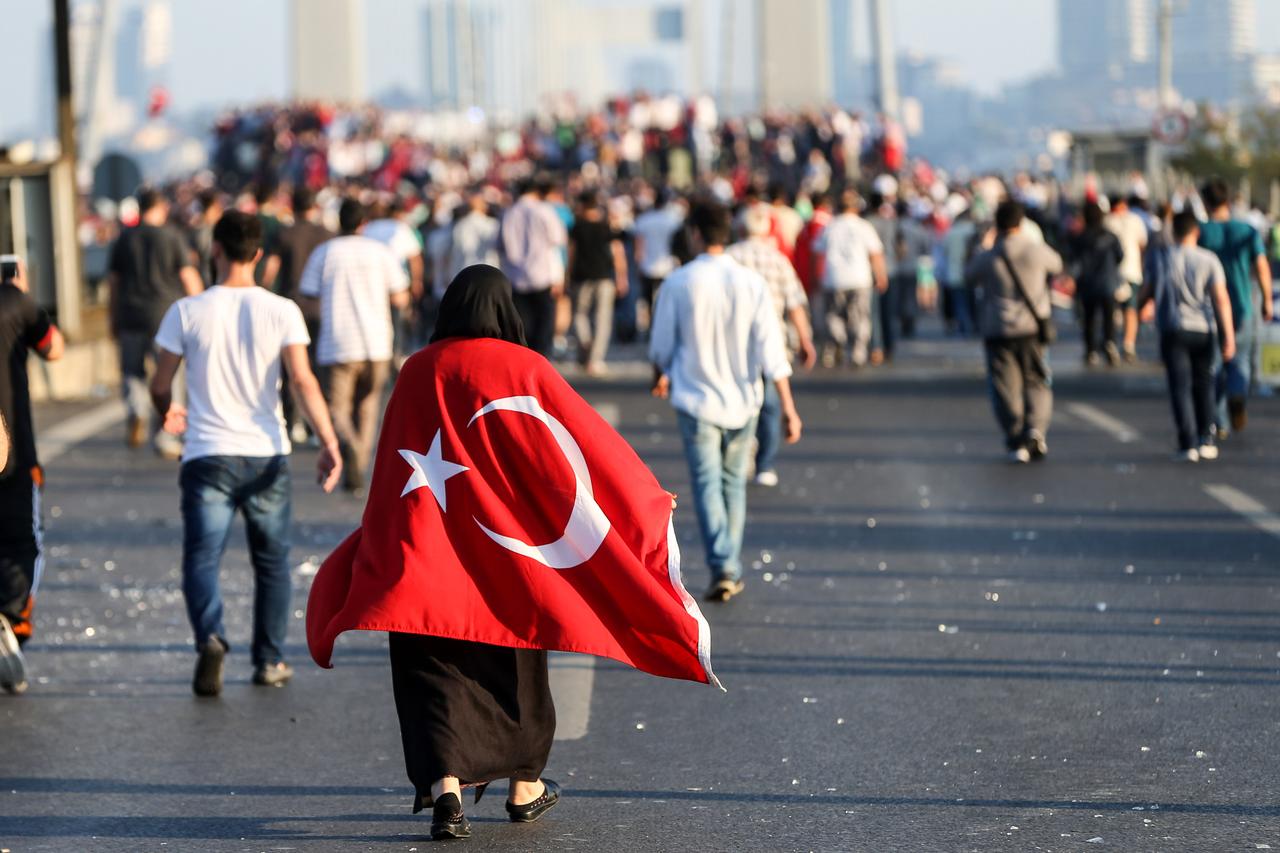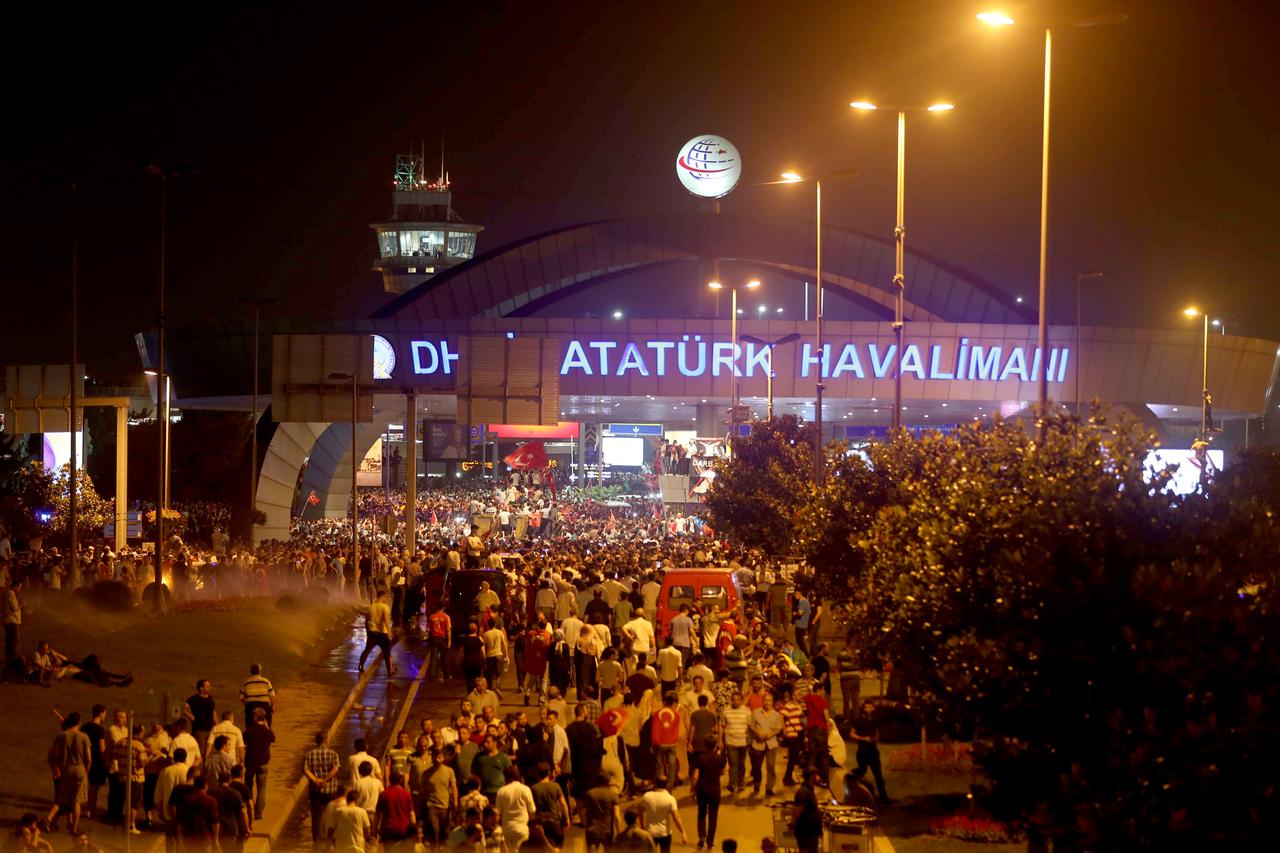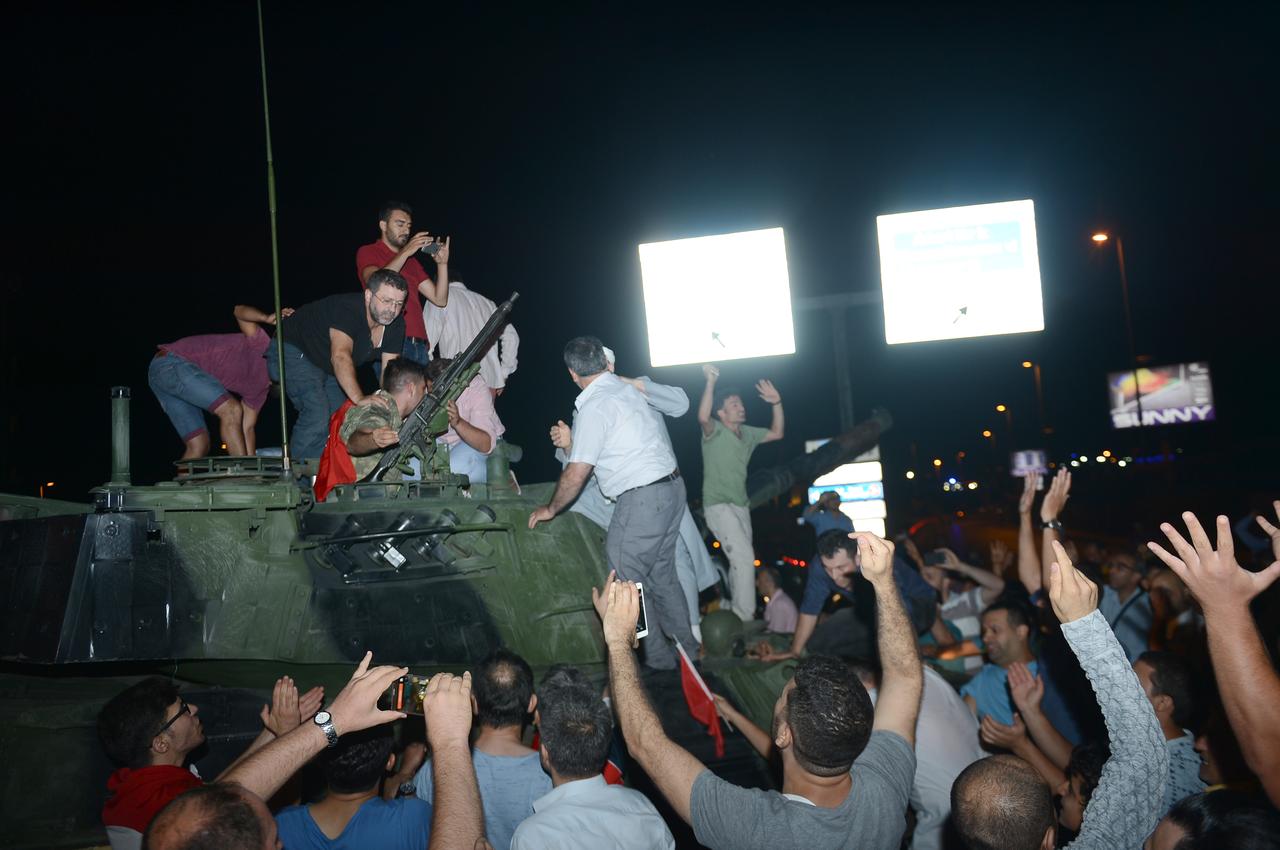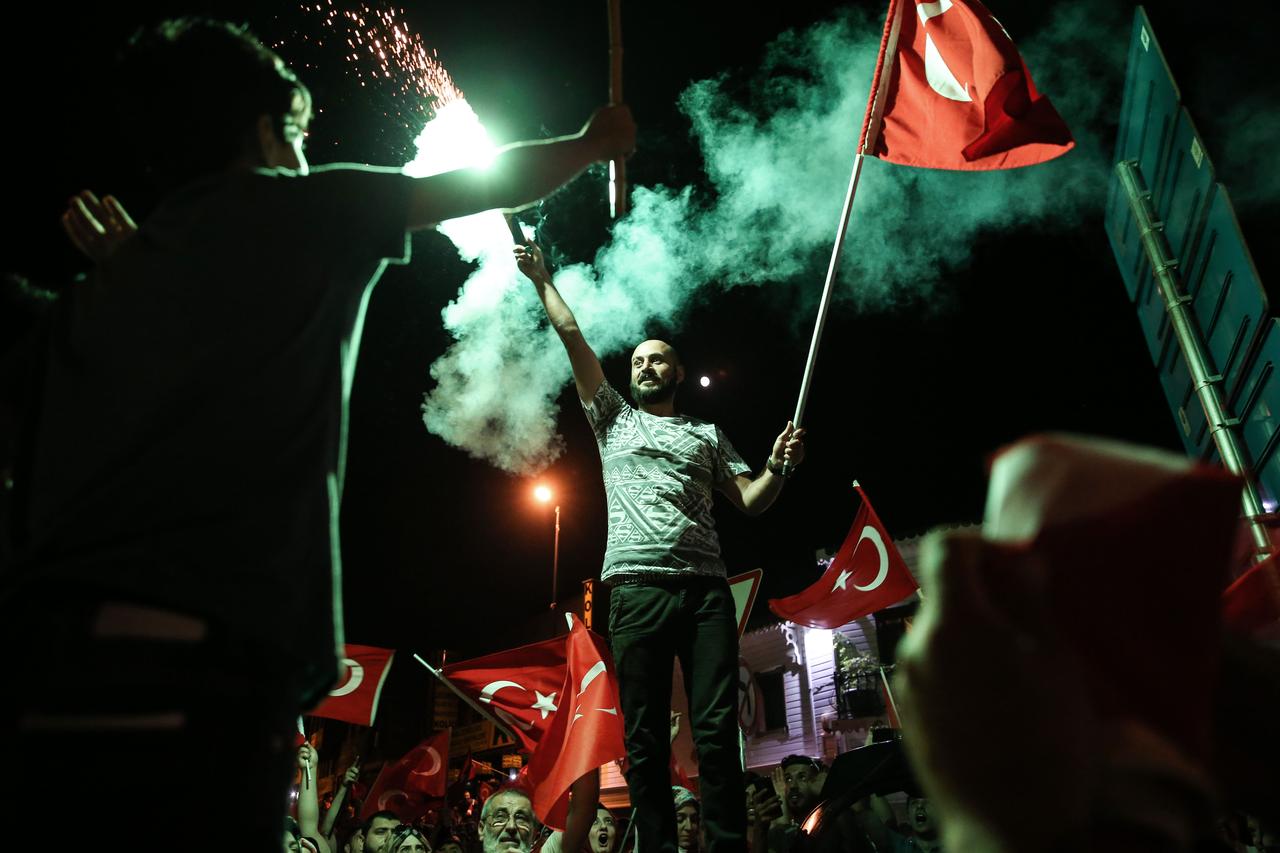
Türkiye on Tuesday commemorated the ninth anniversary of the July 15, 2016, coup attempt by the Fetullah Terrorist Organization (FETO), honoring the 253 people killed resisting the putschists and reaffirming national unity against threats to democracy.
Designated Democracy and National Unity Day since October 2016, July 15 is marked across the country each year with ceremonies to remember those who lost their lives and to pay tribute to the resilience shown by civilians in defense of constitutional order.
FETO and its U.S.-based ringleader, Fetullah Gulen—who died last October— orchestrated the failed coup that left 253 people dead and 2,734 injured, according to official figures.

On the night of July 15, 2016, FETO-linked military officers launched an attempted takeover, moving earlier than planned after their plot was leaked. Strategic locations in Istanbul and Ankara were targeted, including bridges, airports, and government buildings. Fighter jets and helicopters flew low over major cities, bombing key sites and spreading panic.
Tanks blocked the Bosporus and Fatih Sultan Mehmet bridges, and airstrikes hit the presidential complex, Parliament, police headquarters, and intelligence facilities. Then-Chief of General Staff Hulusi Akar was taken hostage after refusing to support the coup.
President Recep Tayyip Erdogan, vacationing in Marmaris at the time, appeared live via FaceTime on CNN Turk and urged citizens to resist.
His appeal triggered a nationwide response. Crowds flooded streets and squares, mosques broadcast Sala prayers, and social media galvanized public mobilization.
The coup attempt was ultimately crushed by dawn, but not before it left deep scars.
4:00 p.m. — The National Intelligence Organization (MIT) warns the General Staff of suspicious activity.
9:00 p.m. — Putschists accelerate their timeline due to leaks.
9:30 p.m. — Erdogan is informed of the unfolding events and contacts MIT Chief Hakan Fidan and General Akar.
10:00 p.m. — Troops block Istanbul’s bridges; F-16s fly low over Ankara.
11:45 p.m. — Tanks occupy Ataturk Airport; air traffic halts.
11:50 p.m. — Citizens take to the streets waving flags and chanting against the coup.
12:00 a.m. — Intelligence sources confirm FETO involvement.
12:09 a.m. — Helicopters fire on MIT headquarters.

12:13 a.m. — TRT news anchor Tijen Karas is forced to read the coup declaration live.
12:37 a.m. — Erdogan appears on CNN Turk: “Let us gather at our squares and airports… I have yet to see any power greater than that of the people.”
12:50 a.m. — Anadolu Agency reports Akar’s abduction.
12:57 a.m. — Putschists attempt to seize TURKSAT to cut national broadcasts.
1:00 a.m. — Erdogan’s hotel in Marmaris is attacked after his departure.
1:39 a.m. — Parliament members and lawmakers gather at the Turkish Parliament.
2:16 a.m. — Sgt. Omer Halisdemir kills the coup commander, Maj. Semih Terzi, at the Special Forces Command, became a national hero.
2:20 a.m. — Airstrikes kill 50 police officers at Golbasi Special Forces Headquarters.
2:30 a.m. — Citizens and police retake TRT studios in Ankara and Istanbul.
2:42 a.m. — Parliament is bombed for the first time; lawmakers remain inside.

3:20 a.m. — Erdogan arrives at Ataturk Airport and addresses supporters: “What matters is not that I am here, but that you are.”
6:00 a.m. — Remaining soldiers on the Bosporus Bridge surrender.
6:43 a.m. — A second bomb strikes the presidential complex.
7:00 a.m. — An explosion hits near the Gendarmerie General Command.
8:32 a.m. — Special operations forces raid Akinci Air Base; General Akar is rescued, and arrests begin.
By daybreak, the coup had failed. Parliament, bombed twice during the night, remained a symbol of defiance, with lawmakers from across the political spectrum refusing to abandon the building.
The failed July 15 coup attempt is widely seen as a defining moment in Türkiye’s modern history. Monuments, national broadcasts, and annual commemorations ensure the memory of those lost endures.
For many, the events of that night reinforced the principle that democracy is not granted but defended—and, in Türkiye, sometimes by unarmed citizens standing firm against tanks.